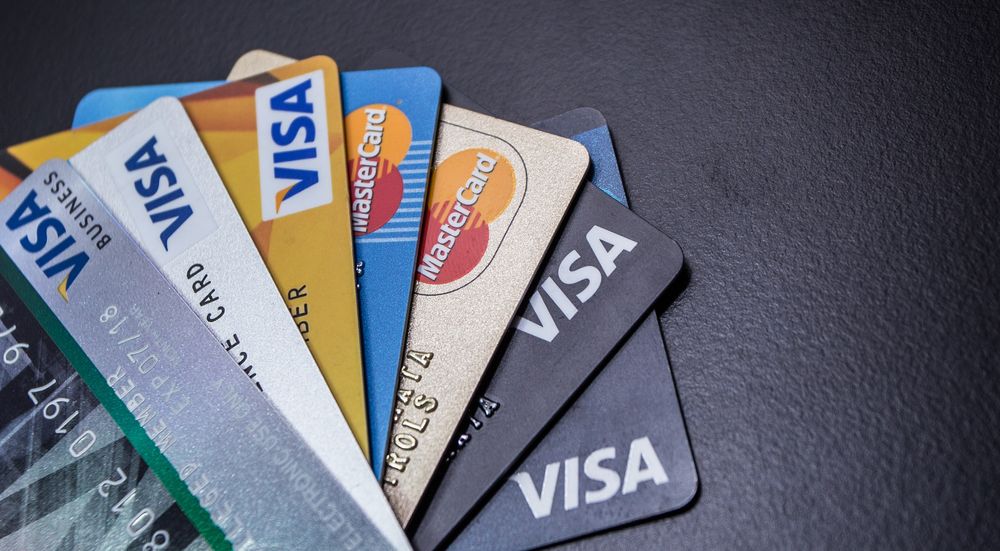Balancing finances is a real challenge, and even the most thorough financial plans can be tainted by unexpected circumstances. When encountering sudden expenditures such as
A credit bureau plays a crucial role in the financial ecosystem, providing information that helps lenders make informed decisions when extending credit to individuals and businesses. In India, there are four prominent credit bureaus: Equifax, TransUnion CIBIL, Experian, and CRIF Highmark.
In this article, we'll delve into the concept of credit bureau meaning, their importance, and how they work, with a focus on the Indian credit bureau landscape.
📗 Related reading- Understanding Commercial Credit Information Reports: Types and Importance
What is a Credit Bureau?
A credit bureau, alternatively referred to as a credit reporting agency or credit information firm, is a financial organisation that gathers and keeps an extensive database of data pertaining to credit for both individuals and companies. This data comprises a person's credit history, payment patterns, and other pertinent financial information. A credit bureau's main objective is to support creditors and lenders in determining a borrower's creditworthiness.
Key Functions of a Credit Bureau:
-
Credit Reporting: Credit bureaus gather data from various sources, such as banks, financial institutions, credit card companies, and Non-banking Financial Companies (NBFCs), to create comprehensive credit reports for individuals and businesses. Credit bureau reports contain a detailed account of a borrower's credit history, including their outstanding loans, repayment behaviour, and credit utilisation.
-
Credit Scoring: Credit bureaus assign credit scores to individuals based on the information in their credit reports. These scores provide a numerical representation of an individual's creditworthiness, with higher scores indicating a lower credit risk. Credit bureau score is widely used by lenders to make lending decisions.
-
Credit Monitoring: They monitor borrowers' credit activities and update their credit reports regularly. Credit bureau check ensures that lenders have access to the most up-to-date information when evaluating loan applications.
-
Fraud Prevention: Credit bureaus also play a crucial role in fraud prevention by identifying and flagging suspicious activities, such as identity theft and fraudulent loan applications.
The Four Credit Bureaus in India
In India, there are four major credit bureaus, each with its unique approach and methodology for collecting and reporting credit data. Let us take a closer look at these credit bureaus:
-
Equifax: Equifax is one of the leading credit bureaus in India and globally. They provide a wide range of credit information and analytics services. Equifax assesses an individual's creditworthiness through credit scores, which range from 300 to 900. A higher Equifax credit score indicates a lower credit risk, making it easier for individuals to access credit at favourable terms. Lenders, banks, and financial institutions heavily rely on Equifax's credit reports and scores to make lending decisions.
-
TransUnion CIBIL: TransUnion CIBIL, formerly known as Credit Information Bureau (India) Limited, is one of the oldest and most widely recognized credit bureaus in India. Cibil credit bureau maintains an extensive credit database and provides credit scores in the range of 300 to 900. A high CIBIL score signifies a good credit history and improves an individual's chances of securing loans and credit cards. Lenders prefer using CIBIL scores when assessing the creditworthiness of borrowers.
-
Experian: Experian is a global credit information company with a significant presence in the Indian market. Experian generates credit reports and scores for individuals and businesses, helping lenders make informed credit decisions. Experian's credit scores typically range from 300 to 900, and a higher score indicates a more favourable credit profile.
-
CRIF Highmark: CRIF Highmark is another credit bureau that operates in India, providing credit information services to both lenders and individuals. They offer credit scores in the range of 300 to 850, with higher scores indicating a lower credit risk. CRIF Highmark's credit reports and scores play a vital role in the Indian lending industry.
How Credit Bureaus Work
Credit bureaus function as intermediaries between creditors and borrowers, helping lenders assess the credit risk associated with potential borrowers. To understand how credit bureaus work, it is important to explore the key processes involved:
-
Data Collection: Credit bureaus collect financial and credit data from various sources, including banks, NBFCs, credit card companies, and even utility providers. This information includes details of loans, credit card accounts, outstanding balances, repayment behaviour, and defaults.
-
Data Verification: The collected data is meticulously verified to ensure its accuracy and completeness. Credit bureaus work with data providers to rectify any discrepancies and maintain the integrity of the information they store.
-
Credit Reporting: Once the data is verified, credit bureaus compile it into credit reports for individual borrowers and businesses. These reports include comprehensive credit histories, credit utilisation, outstanding loans, and repayment patterns.
-
Credit Scoring: Credit bureaus use mathematical algorithms to generate credit scores based on the data in a borrower's credit report. These scores are numerical representations of an individual's or business's creditworthiness. The specific scoring models may vary among credit bureaus, but higher scores generally indicate lower credit risk.
-
Credit Monitoring: Credit bureaus continuously monitor the credit activities of borrowers and update their credit reports and scores regularly. This ensures that lenders have access to the most current information when making lending decisions.
-
Credit Report Access: Lenders, banks, and financial institutions, among others, access credit reports and scores from credit bureaus when evaluating loan applications. This information helps them assess the creditworthiness of potential borrowers and make well-informed lending decisions.
-
Credit Education: Credit bureaus also provide credit education services to help individuals and businesses understand the factors affecting their credit profiles. This includes information on how to improve credit scores, manage debt, and make responsible financial decisions.
Importance of Credit Bureaus
Credit bureaus play a pivotal role in the financial services industry and the economy in general. Their significance can be summarised as follows:
-
Risk Assessment: Credit bureaus enable lenders to assess the credit risk associated with borrowers accurately. This reduces the likelihood of lending to high-risk individuals and businesses, thus lowering the overall default rate for loans.
-
Faster Loan Processing: With access to credit reports and scores, lenders can expedite the loan approval process. Borrowers with good credit profiles can enjoy quicker loan approvals and favourable terms.
-
Financial Inclusion: Credit bureaus promote financial inclusion by providing a standardised method for assessing creditworthiness. This allows individuals who were previously excluded from the financial system to access credit and other financial services.
-
Credit Improvement: Credit bureaus offer valuable insights into an individual's or business's credit history, helping them understand their financial standing. This knowledge empowers borrowers to make informed decisions to improve their credit profiles.
-
Fraud Prevention: Credit bureaus help detect and prevent identity theft and fraudulent credit applications by monitoring for suspicious activities and providing alerts to potential victims.
Conclusion
Credit bureaus are instrumental in the modern financial ecosystem, acting as intermediaries that facilitate lending decisions, enhance financial inclusion, and promote responsible borrowing and lending. In India, Equifax, TransUnion CIBIL, Experian, and CRIF Highmark are the major credit bureaus that maintain extensive credit databases and provide valuable credit information services to lenders and individuals alike.
Understanding the operations of credit bureaus and the role they play in assessing creditworthiness is essential for individuals and businesses seeking access to credit and financial services. It empowers borrowers to maintain healthy credit profiles and make informed financial decisions while helping lenders manage credit risk effectively.
AUTHOR
KreditBee As a market leader in the Fintech industry, we strive to bring you the best information to help you manage finances better. These blogs aim to make complicated monetary matters a whole lot simpler.







